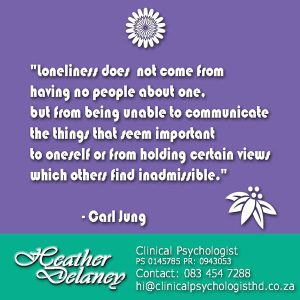Suicide is the intentional direct, and conscious taking of one’s own life. It is a substantial topic, and in South Africa, it continues to be a devastating (yet preventable) public health challenge. The numbers tell a sad story; thousands of lives are lost each year due to suicide. It’s not just a number; it’s friends, family, and loved ones who are left behind.
South Africa has one of the highest suicide rates in the world. Figures indicate that around 7,500 people take their own lives each year. This means that every few minutes, someone in South Africa is making the unbearable choice to end their pain. It’s an alarming reality that affects all walks of life—regardless of age, gender, or background. The complexities surrounding suicide are deeply intertwined with cultural, economic, and social factors. Understanding these elements is crucial for developing effective prevention strategies that can save lives.
Many South Africans face economic difficulties, unemployment, and social issues that can lead to feelings of hopelessness. Many people feel isolated and alone with their stress. Mental health struggles like depression and anxiety often accompany these hardships but aren’t always addressed due to stigma or lack of resources.
South Africa’s unique sociopolitical history, characterized by apartheid and ongoing socioeconomic disparities, creates an environment ripe for mental health challenges. According to the South African Medical Research Council, the suicide rate in South Africa has increased by approximately 25% in the last two decades. While it affects all demographic groups, certain populations—particularly young men and marginalized communities—are at a higher risk.
Risk Factors
- Mental Health Disorders: One of the most significant risk factors for suicide is the presence of mental health disorders, including depression, anxiety, and substance abuse. The World Health Organization has identified these as major contributors to suicidal behaviour globally. In South Africa, mental health services are under-resourced, and many individuals do not receive the necessary treatment, leading to an increase in suicides.
- Socioeconomic Factors: Economic instability, unemployment, and poverty significantly heighten the risk of suicide. Many South Africans face daily struggles with financial insecurity, which can lead to feelings of hopelessness and despair. The high unemployment rate, particularly among youth, exacerbates this issue, making it imperative to address these socioeconomic determinants in any prevention strategy.
- Cultural Stigma: Mental health issues are often stigmatized in South African society, which can deter individuals from seeking help. Traditional beliefs may view mental illness as a sign of weakness or a spiritual problem, leading to further isolation for those in need of support. This cultural stigma complicates efforts to encourage open discussions about mental health and suicide.
- Substance Abuse: The prevalence of alcohol and drug abuse in South Africa is another critical factor contributing to suicide. Substance use can impair judgment and increase impulsivity, making individuals more likely to act on suicidal thoughts. Communities with high rates of substance abuse often see corresponding spikes in suicide rates, highlighting the need for integrated prevention efforts.
- Violence and Trauma: South Africa has one of the highest rates of violent crime in the world, which can lead to a culture of trauma and fear. Exposure to violence—whether as a victim or witness—can have lasting psychological effects, increasing the risk of suicidal behaviour. The impact of historical trauma, particularly in marginalized communities, also plays a crucial role in mental health outcomes.
Prevention Strategies
Given the multifaceted nature of suicide risk in South Africa, a comprehensive approach to prevention is essential.
- Improving Mental Health Services: Increasing access to mental health care is crucial. This includes expanding resources for psychological services, integrating mental health into primary health care, and training healthcare providers to recognize and address mental health issues effectively.
- Community Awareness Campaigns: Public education campaigns can help to reduce the stigma surrounding mental health and encourage individuals to seek help. By promoting open dialogue and providing information about available resources, these campaigns can foster a supportive environment that facilitates recovery.
- Economic Empowerment Initiatives: Addressing socioeconomic factors through job creation, education, and community development can reduce the risk of suicide. Empowering individuals with skills and opportunities can help alleviate the feelings of hopelessness that often lead to suicidal behaviour.
- Substance Abuse Programs: Implementing and promoting substance abuse treatment programs can significantly impact suicide prevention. Providing support and rehabilitation services for individuals struggling with addiction can reduce their risk of suicide and improve overall community health.
- Crisis Intervention Services: Establishing accessible crisis intervention services, such as hotlines and community support groups, can immediately assist distressed people. These services should be culturally sensitive and available in multiple languages to reach diverse populations effectively.
Suicide remains a pressing issue in South Africa, driven by a complex interplay of mental health disorders, socioeconomic challenges, cultural stigma, and trauma. Addressing these risk factors requires a multifaceted approach encompassing improving mental health services, raising awareness, promoting economic empowerment, and providing crisis support. By taking a comprehensive stance on suicide prevention, South Africa can move toward a future where individuals receive the support they need and where the tragic loss of life to suicide is significantly reduced.
Do you know someone who may be Suicidal?
Contact: Suicide Crisis Line (SADAG) 0800 567 567
National Counselling Line (Lifeline) 0861 322 322
More information on how to help someone who is feeling suicidal HERE



